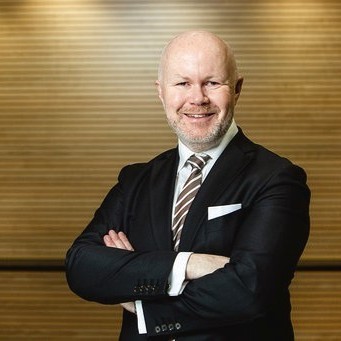
Global markets have withstood a range of crises over the past two years but investors should not try to second-guess where stocks will go next, analysts say.
Can nothing stop this stock market? It’s had everything thrown at it in recent years. The US-China trade tension. A global pandemic. Inflation. War in Ukraine. Soaring oil prices. Yet it still won’t do the decent thing and crash.
Is the global stock market indestructible — or living on borrowed time?
Until recently, the main reason share prices shrugged off all those slings and arrows could be explained in three words: central bank stimulus.
Every time markets came under fire, the US Federal Reserve and central banks responded by slashing interest rates and printing virtual money.
This process was originally called the “Greenspan put”, named after former Fed chair Alan Greenspan, who used monetary policy to slow the 1987 crash by cutting the Fed funds rate, buying up US government bonds and offering low-cost loans to Wall Street banks.
The Fed also raced to the rescue after the dot-com crash, 9/11 terror attacks, the global financial crisis and the pandemic, effectively backstopping markets in times of trouble.
This was great news for investors, who knew the Fed had their backs, but a disaster for savers, who got next to nothing from cash.
That’s been going on for 35 years, but it can’t continue after US inflation hit a 40-year high of 7.9 per cent in January, forcing the Fed to tighten when it would much rather ease.
Central bankers spent the past year in denial, claiming inflation was “transitory” and trashing their own reputations in the process by keeping interest rates too low for too long.
Fed chairman Jerome Powell dropped the transitory inflation line in November and finally took action last Wednesday, increasing the benchmark interest rate for the first time in three years, although only by a meagre 0.25 per cent.
There is more to come, with Mr Powell signalling another six increases this year as he belatedly turns hawkish.
Interest rates are now expected to hit 2.8 per cent by the end of 2024, says Toby Sturgeon, global head of fiduciary investment services at Zedra.
“In further tightening, the Fed could start reducing bond holdings on its balance sheet as soon as May.”
With inflation running hot, Mr Powell has little choice — but he’s playing with fire.
“By increasing the cost of borrowing too rapidly, he risks reining in economic growth and tipping the economy into a downturn,” Mr Sturgeon says.
For years, central bankers have been treated like magicians whose words alone had the power to calm frayed financial nerves, says Nicholas Hyett, an investment analyst at the Wealth Club.
That’s no longer the case as inflation soars and increasing interest rates will make a bad situation worse by further squeezing businesses and consumers.
“Our monetary wizards may soon find themselves wandless,” Mr Hyett warns.
If they really have lost their magic touch, then investors are in trouble. The backstop has gone. We’re on our own.
High interest rates will squeeze consumers and businesses while doing nothing to prevent the underlying inflationary drivers, which are post-Covid supply chain disruptions, a Chinese regulatory clampdown and Russia’s invasion of Ukraine, says Hinesh Patel, portfolio manager at Quilter Investors.
The hope is that markets will adjust to the new reality, rather than panic and crash.
“Even with six rate hikes in the pipeline, monetary policy remains loose,” Mr Patel adds.
So what should investors do? One thing they should definitely not do is try to second-guess where stock markets and asset prices will go next. That is always impossible, but especially now.
While the news from Ukraine is dismal, investors are still keen to believe in this market and seize on any positive news that comes their way.
Vague rumours of peace talks, including a ceasefire and Ukraine halting any lingering efforts to join Nato, sent oil prices crashing from a peak of $132 to below $100, a move few expected.
Investors who loaded up on gold when the price hit $2,068 an ounce last week were roasted when it crashed to $1,918. That’s a drop of 7.2 per cent in what is supposed to be a safe haven in times of trouble.
Russian President Vladimir Putin quickly shot down peace hopes, but investors are still reluctant to dump their “risk-on” mode, which has been their default for decades.
So they jumped on news that China’s Vice Premier Liu He, President Xi Jinping’s top economic adviser, recently announced support for real estate and technology companies, which have been hit by strict regulatory measures.
“This triggered a huge bounce for Chinese stocks and gave the rest of the world hope that a sizeable economic package is on the way,” says Chris Beauchamp, chief market analyst at online trading platform IG.
Investors should keep an eye on energy prices, says Neil Debenham, corporate consultant and chief executive of consultancy Fintrex.
If they rocket, they could force the global economy into a second recession in three years.
“Today’s fear, uncertainty and precarious post-Covid markets may still have potentially devastating economic consequences,” Mr Debenham says.
No investor will be immune.
“The costs of this war will not be limited to just the countries fighting it,” he adds.
Investors carry on during catastrophes because they have no choice, says Lee Wild, head of markets at Interactive Investor.
While many flee risk after the initial shock, they are soon tempted back.
“History tells us that we carry on, despite considerable human suffering. Stock prices have recovered from every war, bar none. That includes the Second World War, Korea, the Gulf War, Afghanistan, Iraq, all of them,” Mr Debenham says.
If we do get a crash, history suggests that this is a good time to invest, rather than a bad one. Mr Wild notes that London’s FTSE 100 hit a low of 3,460 on March 9, 2009, directly after the financial crisis.
“It has since more than doubled in value, despite this year’s volatility. Include reinvested dividends and total return is more than 200 per cent.”
Forget trying to time the markets as you are unlikely to invest a lump sum at the very bottom and make your fortune. Instead, drip feed in smaller sums to take advantage of any dips, he says.
“Regular investing both reduces risk and can be hugely profitable, as money invested on the way down generates handsome returns on the way up.”
With waves of Covid-19 still hitting China, conflict raging in Europe and commodity chaos affecting exchanges over the past few weeks, central bankers have a tricky tightrope to tread, says Susannah Streeter, senior investment and markets analyst at Hargreaves Lansdown.
Much now depends on whether China will heed US President Joe Biden’s pleas to stay out of the Russia-Ukraine crisis or get involved and escalate the crisis dramatically. Yet investors refused to be daunted, Ms Streeter says.
“Even the Federal Reserve’s more aggressive plan ahead hasn’t derailed sentiment.”
This stock market is down, but it is far from out. Which is quite incredible, given the pressure it is under right now.
Let’s hope it continues to hang tough.
Source: The National News
View our blog for market news and company updates.



